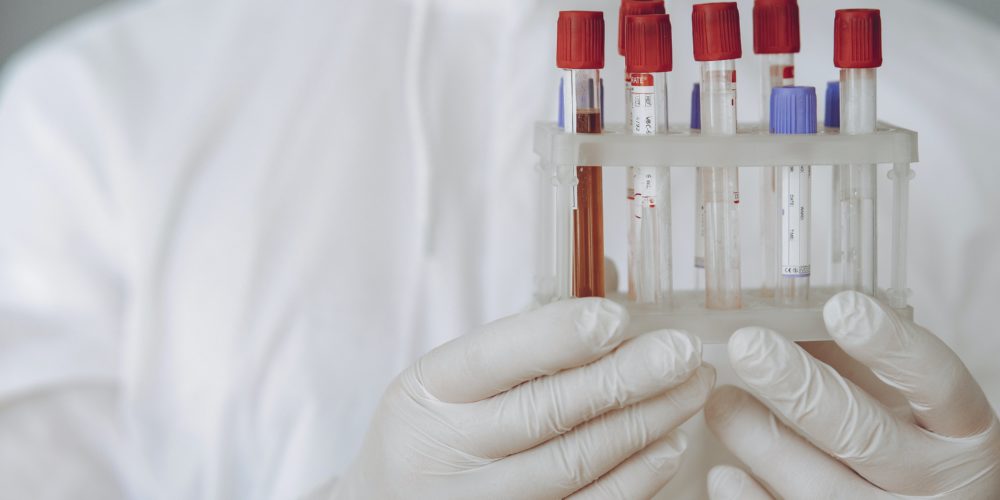
How Accurate Is the Rapid Covid Test?
With the world opening up more each month, the demand for getting a quick response to your Covid-19 testing is higher than ever before. Getting a test quickly and with accurate results is of the utmost importance. Out of all the types of Covid tests, a rapid Covid test can provide results within minutes. It is then fair to wonder if I get my test result back so quickly, will I have a higher risk of a false positive? In this piece, we aim to answer these questions and more to keep you safe and educated.
Rapid Covid Test Accuracy Rate
The two commercially available types of rapid tests are antigen (known as the rapid test) and molecular (known as the PCR test). An antigen test identifies the presence of proteins of the virus in your system. The molecular test works to detect the virus’s genetic material (similar to laboratory methods). Both of these tests are performed with nose and throat swabs.
The accuracy of an antigen test depends highly on when you administer it during your infection. The CDC recommends that fully vaccinated people should be tested 5–7 days after their last exposure. It takes between 10 and 15 minutes to get your results back, and the test is considered to have moderate to high sensitivity during peak viral load. Compared to molecular tests, antigen tests have a higher chance to generate false negative results, especially if you administer the test while not experiencing symptoms.
A molecular test may not seem as rapid as an antigen test because the results are often sent to a lab. The results can come back within a day but depend on your location, it could take up to a week to see results. That longer waiting period will be worth it, as laboratory tests generally have high test sensitivity. The risk for false negative results is still there with these types of tests as well.
Studies have shown that people who are confirmed to have Covid and were when given an antigen test, correctly identified Covid infection in an average of 72% of people with symptoms. This is compared to 58% accuracy to those who did not show symptoms. The same studies were done with molecular tests, and 95.1% of infections were correctly diagnosed and 99% were correctly ruled out. The only caveat with these numbers is that all of the tests were performed inside of a lab and not in a real-world environment.
Is the PCR Test for COVID19 Accurate?
A polymerase chain reaction (PCR) test is a type of molecular test that analyzes specimens from the upper respiratory area, looking for COVID-19’s genetic material. The PCR technology is used to amplify small amounts of ribonucleic acid (RNA) into deoxyribonucleic acid (DNA). This process is repeated until COVID-19 is detectable if it is present in you.
Tests from MIT Medical have shown that “the PCR test is more accurate at detecting early-stage infections, and there are early indications that the antigen test may be better at identifying patients who are already recovering.” It should be noted that if a specimen is not collected perfectly, the sample might not contain enough viral material to come back positive. It would also be advisable for you to contact your healthcare provider and request a PCR if you receive a positive result from a rapid test to make absolutely sure that you have the virus.
What Causes a False Positive Rapid Covid Test?
A false positive test result is something that cannot be 100% fixed. Laboratories are aware of this fact and are constantly working to mitigate this issue. One reason that your COVID-19 rapid test result could come back as a false positive result is not reading the results during the specified time. On a test, there will be instructions on how long to wait before checking the results, and if the lab reads the test before or after the specified time could result in false positive or false negative results.
What are the Consequences of a False Negative COVID19 test?
First and foremost, if you have any concerns about your test results coming back as a false negative we recommend talking to your health care provider. It takes time for COVID-19 to become established in your body, this means that just because you received a negative result does not mean you won’t receive one later. The consequences of a false negative test mostly come down to timing. There is also a latent period where if you are infected with the virus you won’t be able to spread it to others. Although, another major consequence of getting a false negative test result is that you might feel okay to hang around other people, and then you will end up transferring the virus to them as well.
Be up to date on your Health with BioCollections
BioCollections is an international leader in infectious disease testing. Our private labs can provide PCR test results in 24-48 hours. We have been at the forefront in providing our customers customized solutions not only for the development of new and emerging testing methodologies for our in-vitro/molecular development partners but also for providing the best-in-class testing services to our individual clientele. To learn more about what we do, please visit our website.
